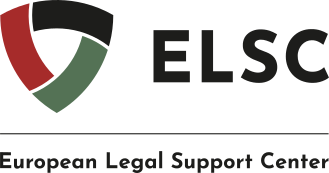Case update – Despite a negative ruling, solidarity persists and ELSC funding campaign covers all costs for the court case.
In 2019, a secret dossier was created by RIAS Berlin and MBR aimed at misinforming the public about Dr. Younes’ work and opinion misrepresenting her as antisemitic and supportive of sexism and terrorism. The latter depictions resulted in excluding her from an event on anti-racism and combating right-wing networks where Dr. Younes was invited to present her work. Moreover, it was only after a public media campaign and a complaint against the Berlin Data Protection Authority (DPA) that the DPA finally acknowledged Dr. Younes’ right to access her data. On 2 May 2022, almost two years later, RIAS/MBR hence withdrew their original position that Dr. Younes had no right to access her data, released the secret dossier previously disseminated and finally acknowledged the merits of her claim. A few days later, the Berlin District Court (Amtsgericht Berlin Mitte) also handed down its decision in favour of Dr. Younes.
In the heading of the dossier, however, it was indicated that more information can be retrieved upon request of those receiving it. To this day, it remains to be clarified whether RIAS and MBR have been storing further data on Younes other than those revealed in the disseminated and leaked dossier. Practices such as these are, however, reminiscent of the work of intelligence agencies. In this case, the existence of said dossier has only been exposed through a whistleblower. This highlights once more the structural deficiencies to combat racism of the German legal system and the unwillingness of German authorities to protect Palestinians from anti-democratic surveillance by state funded organisations.
In April 2024, the Berlin State Court (Landgericht Berlin) ruled that albeit an existing breach of the EU General Data Protection Regulation (GDPR), Dr. Younes is still not entitled to damages, because the dossier had already been leaked to her and was thus in her possession.
Additionally, since it took the DPA two years to finally acknowledge Dr. Younes’ rights had been violated, Dr. Younes, her lawyer, and the ELSC had decided to file a complaint against its “inactivity” in an administrative court, while also filing another complaint to the civil court (Landgericht Berlin) to request damages from RIAS and MBR for withholding her data for so long. The request for damages was also rejected.
The court has missed an opportunity to protect individuals’ data rights against the distorted use of the “journalistic exemption” rule for unlawful surveillance practices as argued by RIAS/MBR. It also fails to hold state-funded organisations such as RIAS Berlin and MBR fully accountable for their repressive practices, which have serious consequences for individuals’ reputation, ability to find jobs in the future, and fundamental rights, and freedoms.
ELSC’s lawyer Alexander Gorski remarked:
“The court took the safe way out and fails to acknowledge the dangerous potential of creating a chilling effect for communities of scholars, activists, and in the arts. The court disregarded the intention of limiting freedom of expression by instilling in them the fear that their personal data and work could be constantly tracked and used against them, thereby preventing them from exercising their academic freedom.”
He further added:
“German courts have also been very conservative in handing out compensation in data protection cases.”
This case shows once more that ultimately our solidarity is our best protection: Not only did solidarity expose the secret dossier, but it also covered all costs for the lawsuits so far. We must keep pushing collectively to expose the illegal surveillance practices. The administrative case launched by Younes’ case is pending.
We are expecting the administrative court to recognise that the dossier’s preparation in and of itself as not legitimate nor lawful. So far, the DPA only acknowledge that the transmission of the data was unlawful, not its preparation. We expect the next hearing to take place next year
We would like to thank the generous donors who covered all legal costs for Dr. Anna-Esther Younes’ case.
Covering legal costs for people who suffer from misrepresentation and surveillance has been an important part of this long case and journey, and we would not have been able to see it through without your political and financial support!
Your support got us to not only meet the targeted amount needed to cover the costs, but even surpassed it. In total, we raised EUR 8,956! The surplus funds raised in this crowdfunding campaign for Dr. Younes will go into the German legal aid fund that is handling other cases challenging censorship of Palestinian rights advocates such as this case.
Furthermore, we also want to thank the 1000+ signatories who signed a letter in support of Dr. Anna Younes and against the censorship of academics, activists and journalists in Germany.
The support the ELSC’s campaign received, especially from academics and activists, highlights this shared concern against the structural issue of profiling Palestinians and Palestinian rights advocates in Germany and beyond. There remains a lot to be done. The journey is long, and the fight is not over: Your continuous support matters!
Read more about the case: Germany: A Concerning Case of Censorship and Digital Surveillance (elsc.support)
Read a recent interview with Dr. Younes on the situation in Germany by M. Hill, April 2024: The Left Berlin – “A lot of Palestinians here have the feeling of being invisible”.
The ELSC is an independent organisation that relies on the movement for its growth and impact. Support us in our fight against state repression with a minimal recurring donation. Click here to learn more.




